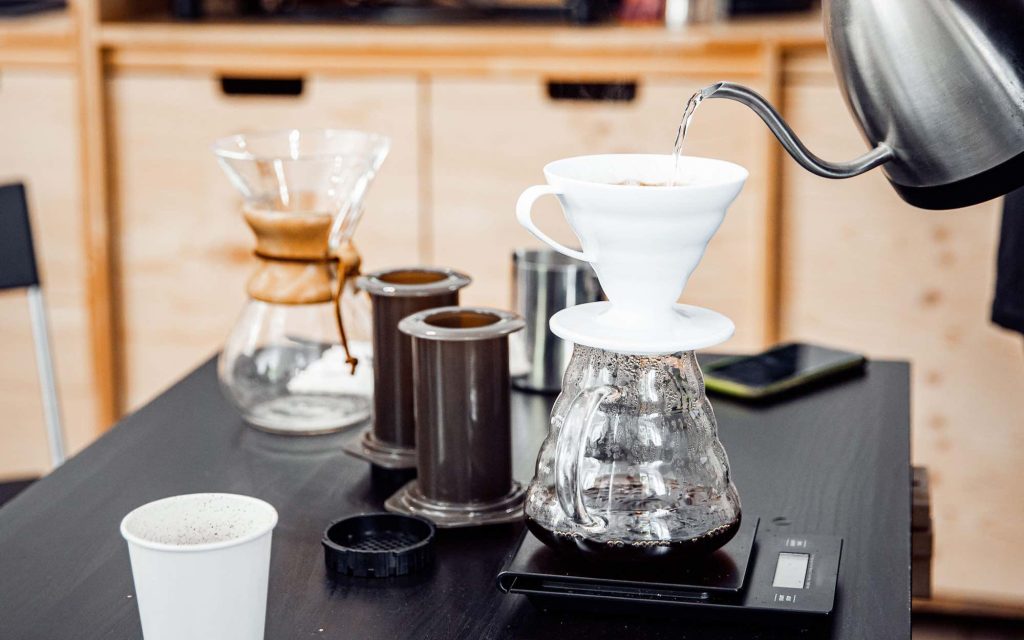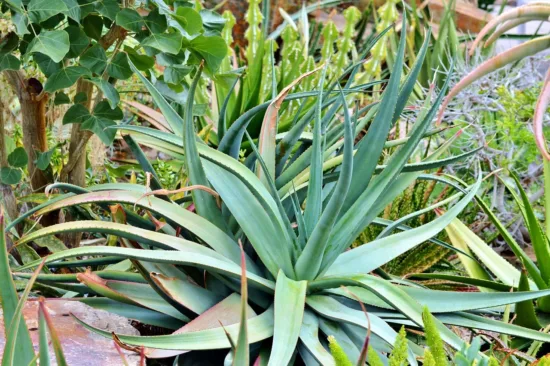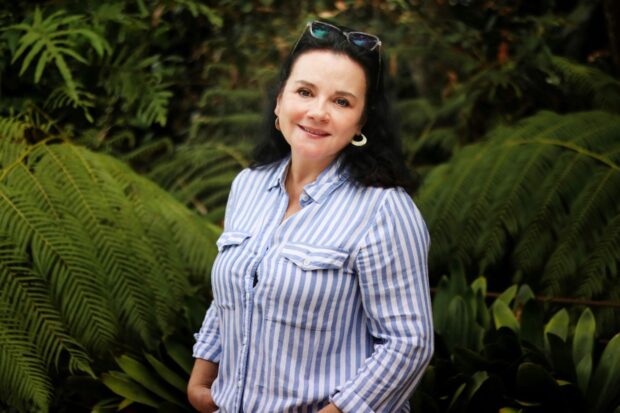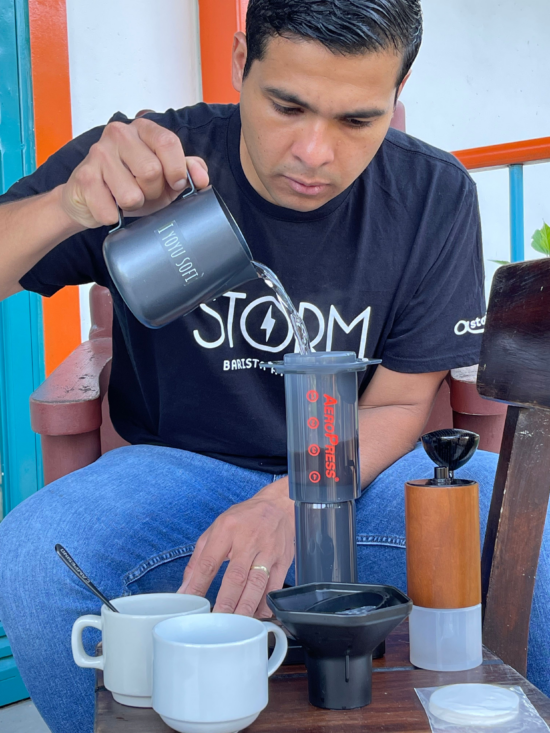The most affordable Keurig coffee maker is available exclusively at Walmart and comes at a sweet price of only $59.00. In this article, you’ll find out how good it really is, and also find additional information like how to clean it, or do you need a water...
Interest in coffee & health is rising – what do consumers need to know?
Interest in coffee & health is rising – what do consumers need to know?
Interest in coffee & health is rising – what do consumers need to know?
Interest in coffee & health is rising – what do consumers need to know?
Interest in coffee & health is rising – what do consumers need to know?
Interest in coffee & health is rising – what do consumers need to know?
Quick French Press Iced Coffee (No, It’s Not Cold Brew)
This is the absolute fastest way to make French press iced coffee. Just forget about cold brew concentrate – with this Quick French Press Iced Coffee Recipe you can have your iced coffee ready in 5 – 6 minutes. Who doesn’t like the French press?! It’s...
Here’s How to Change Keurig 2.0 Water Filter Easily
Not sure how to change Keurig 2.0 water filter? Here are step-by-step instructions that will help you do it quickly and easily. Keurig water filter should be changed every 2 months or 60 tank refills. The water filter is located inside the water tank, on the valve at...
The coffee rose for assessing Anaerobic coffee
I just came across this really neat tool to assess anaerobic coffees. I haven't used it for cupping yet. I'm not sure I will like it either because the idea of lowering the score of the coffee just because it tastes has some thyme flavors. At the same time I...
Three US Coffee Championship Events Are Heading To Rancho Cucamonga
This article is from the coffee website Sprudge at http://sprudge.com. This is the RSS feed version. The 2024 US Barista Championship, Brewers Cup, and Cup Tasters will take place March 15-17 at Klatch Coffee Roasters in Rancho Cucamonga, California.
The Origin Story of Turtle Island Coffee in Vancouver, B.C.
A new Indigenous-owned coffee company based in Vancouver, British Columbia, called Turtle Island Coffee has launched with the goal of exposing more people to high quality specialty coffee and Indigenous...
Get Ready for The Barista League’s 2024 Season
The Barista League has announced 12 competitions across four continents. BY J. MARIE CARLANBARISTA MAGAZINE ONLINE Photos courtesy of The Barista League When The Barista…
Get Ready for The Barista League’s 2024 Season
The Barista League has announced 12 competitions across four continents. BY J. MARIE CARLANBARISTA MAGAZINE ONLINE Photos courtesy of The Barista League When The Barista…
Get Ready for The Barista League’s 2024 Season
The Barista League has announced 12 competitions across four continents. BY J. MARIE CARLANBARISTA MAGAZINE ONLINE Photos courtesy of The Barista League When The Barista League announces new events, it’s worth paying attention! This year, the schedule will be...
Weekly Coffee News: EUDR and Africa + More Celebrity Coffee
Welcome to DCN’s Weekly Coffee News. Keep up with all the latest coffee industry stories and career opportunities by subscribing to DCN’s newsletter. Tell our editors about your news here. Report: Small-Scale Farmers in...
Do Higher Coffee Prices Mean More Money For Farmers? A Story From Sumatra Shows It’s Complicated
This article is from the coffee website Sprudge at http://sprudge.com. This is the RSS feed version. Since coffee costs more now than ever, do those coffee prices impact the amount of money earned by coffee farmers?
Coffee News Recap, 2 Feb: Applications open for Australia’s Richest Barista 2024, De’Longhi reports 4.6% revenue increase after La Marzocco move & other stories
Every Friday, Perfect Daily Grind rounds up the top coffee industry news from the previous week. Here are this week’s coffee news stories. The word of the week is: expansion. Mon, 29 Jan AeroPress launches limited-edition Clear Pink brewer. The coffee brewer is made...
Watch The 8 Best Coffee Videos Vying For Sprudgie Awards
This article is from the coffee website Sprudge at http://sprudge.com. This is the RSS feed version. The best coffee videos from 2023 featuring Cafe Imports, Aramse, Nguyen Coffee Supply, Wildly, Mirror Coffee Roasters, Alto Stories, Quek Shio, and Cafe Retiro.
Robusta is great and has untapped potential
I live in the US and my typical choice of coffee is lightly roasted Ethiopian pour overs. I generally love acidity and fruit flavors in my coffee. My experience with Robusta has often been poor. Very dark, roasty and maybe chocolatey. I participated in the Hoffman...
Design Details: Brewing Reinvented at ULA Café in Melbourne
Welcome to Design Details, an ongoing editorial feature in Daily Coffee News focused on individual examples of coffee shop architecture, interior design, packaging design or branding. If you are a coffee...
Robert Downey Jr.’s New “Happy Coffee” Is Really Depressing
This article is from the coffee website Sprudge at http://sprudge.com. This is the RSS feed version. Robert Downey Jr. and Craig Dubitsky team up for Happy Coffee.
Out Now: The February + March 2024 Issue of Barista Magazine!
In our new issue we feature Lisa Lawson from Glasgow, Scotland, take a look at the newest grinders, explore spring drink inspiration, see how more women are getting involved in coffee tech, and much more! BY SARAH ALLENBARISTA MAGAZINE We’re stoked to announce the...
The coffee industry’s biggest competition: The story of the World Barista Championship
Every year, the global coffee industry gears up for one of its most exciting and groundbreaking competitions: the World Barista Championship. For more than two decades, the WBC has been one of the biggest catalysts for change and innovation in specialty coffee, and...
The 2023 Specialty Coffee Transaction Guide Has Landed
The 2023 edition of the Specialty Coffee Transaction Guide (SCTG) guide went live today, providing actors throughout the coffee chain a data-driven tool for green coffee price discovery. The full...
Espro great until I needed replacement filter ☹️
I've had an Espro P7 for nearly four years after seeing glowing praise on this sub (to which I later contributed). Before I bought the P7 I looked at the replacement parts available and they seemed like a solid company in that they sold e.g. replacement filters...
New Bill Requires More Kona In Your Kona Coffee
This article is from the coffee website Sprudge at http://sprudge.com. This is the RSS feed version. Currently a coffee only need to be 10% Kona to be labeled as such.
What’s the best and worst part about owning and running a coffee shop?
I'm not interested in getting into it myself, as I have no experience in the service industry, no real appetite for risk and no desire to run a business in general. But sometimes I think about it and I wonder what's the most enjoyable thing about it and...
minimum dose size?
I use the Hario switch to brew my coffee and am trying to reduce my caffeine consumption. Hence I would like to brew smaller cups of coffee. I am currently using 10g of coffee with 160g of water. (1:16 Ratio) I am wondering if there is a minimum amount of coffee...
[CAFE OWNERS] Background before starting a shop?
I’ve worked in coffee for 6 yrs as a barista and shift supervisor and have passion for it. I’ve decided that I want to open my own place in the future and so I’ve been doing the research to make a business plan. Lately, however, I’ve begun to realize just how many...
Interest in coffee & health is rising – what do consumers need to know?
There is a wealth of scientific research available about the many health benefits of coffee – as well as the undesirable side effects of drinking too much. But like all fields of science, research about the impact of drinking coffee on human health is ever-changing as we uncover new findings.
Interestingly, the continuous discovery of new research about coffee and health is occurring in conjunction with a growing number of consumers (mostly led by millennials and Gen Z) who are increasingly conscious of their wellbeing.
Consequently, it can be challenging for consumers to determine what information is the most relevant to them on an individual basis. This is especially true for people who are sensitive to caffeine or those who feel they drink too much coffee. Additionally, it’s becoming increasingly more of a priority for consumers to weigh up the benefits of consuming coffee against its potential negative effects like jitters, insomnia, anxiety, and digestive issues.
So, what do consumers actually need to know about coffee and health? Read on to find out the expert opinions of Astrid Nehlig, Emeritus Research Director at the French Institute of Health and Medical Research and President of the Association for the Science and Information on Coffee (ASIC), and Dr. Ingo Lantz, Director of R&D, Quality, and Technology at Tchibo and President of the Institute for Scientific Information on Coffee (ISIC).
You may also like our article on coffee, health, and wellness: the original “superfood”.

What do scientists know about the relationship between coffee and health?
Coffee is a part of millions of people’s diets around the world, and offers a number of nutritional benefits. But as with any food and beverage product, consumption should be with reasonable limits. For adults considered to be in good health, the US Food and Drug Administration states 400mg caffeine per day is a safe amount. This roughly equates to between four and five cups of coffee.
“The key message for consumers is that moderate coffee consumption can be part of a healthy balanced diet and potentially provide a wide range of health benefits,” Ingo says.
Many medical experts, nutritionists, and sports coaches agree that coffee can be classified as a superfood because of its high level of antioxidants. Research has found that these can improve life expectancy and reduce the risk of certain diseases, including Parkinson’s and diabetes.
Coffee as a “superfood”: Factually correct?
Although “superfood” has become somewhat of a buzzword that is difficult to substantiate for many food and beverage products, Ingo tells me that thousands of peer-reviewed scientific studies indicate moderate coffee consumption is perfectly safe and beneficial to human health.
“There’s a wide body of research which shows that as part of a balanced diet, coffee can have beneficial effects on the human body, including improved attention, physical performance, liver function, digestion, and helping to prevent diseases such as type 2 diabetes or cardiovascular disease,” Ingo explains. “The mechanisms behind these health effects vary, but caffeine itself contributes to many of them, including improved mood and alertness.”
Many compounds in coffee, namely caffeine, are some of the most researched components in the human diet. To promote such research, ASIC hosts an annual conference that brings together leading international experts in fields such as agronomy, chemistry, technology, and health. This year, the 29th edition of the ASIC Conference on Coffee Science took place in Vietnam, with two presentations focused specifically on coffee and health – covering topics like type 2 diabetes and heart health.

What is most important for consumers to know about coffee’s effect on health?
Given the depth and breadth of scientific research about coffee and health, it can be overwhelming and challenging for consumers to know which information is the most relevant and pertinent to them.
Many compounds in coffee contribute to its health benefits, but caffeine and antioxidants are the most prevalent. The antioxidant properties of coffee come from polyphenols, which is a type of chemical that naturally occurs in plants.
Coffee’s high concentration of antioxidants play a critical role in maintaining homeostasis – a condition of optimal functioning. These antioxidants – mainly chlorogenic acids, trigonelline and melanoidins – have a range of protective effects.
“Coffee contains such a large quantity of antioxidants (several times more than tea, wine, and some fruits and vegetables) that consumption of two cups per day almost covers the daily requirement for these compounds,” Astrid tells me.
Almost immediately after consumption, drinking one cup of caffeinated coffee can increase alertness, energy, and visual attention, as well as decreasing reaction time to different stimuli.
“Coffee does not affect working memory directly, but rather as a result of its impact on attention, concentration, and efficacy to suppress external distractors,” Astrid adds. “Coffee also has positive effects on mood and there is evidence that consumption can decrease the risk of depression.”
Preventing certain diseases
Over time, caffeine in coffee can delay physiological age-related cognitive decline, and can also prevent the development of neurodegenerative diseases such as Parkinson’s and Alzheimer’s.
Additionally, certain compounds in coffee can prevent the development of cancer – such as in the liver, colorectal, breast, endometrium, prostate, and skin. Astrid, however, explains that coffee isn’t known to affect the occurrence of cancers in the oesophagus, stomach, larynx pancreas, ovary, kidney, or bladder.
Coffee and digestion have often been linked, and it’s especially important that consumption is moderate as to not result in digestive issues.
“Drinking coffee stimulates digestion at all levels of the digestive tract, including the composition of the microbiota,” Astrid says. “But the compound(s) responsible for this effect have not yet been clearly identified.”
Coffee consumption also correlates with a lower incidence of type 2 diabetes across multiple demographics. Astrid explains that coffee’s ability to prevent or delay the occurrence of type 2 diabetes is “dose-dependent”. Essentially, this means that the risk of type 2 diabetes decreases by 21% with three to four cups of coffee per day, and by 50% with at least seven cups per day (which is over the recommended daily limit).
“This decreased risk has been found in different genders, body types, and ethnicities – and we see similar effects with caffeinated and decaffeinated coffee,” she adds. “The latter observation implies that caffeine does not play any role in this effect, but is instead because of the antioxidants.”
Heart health
One of the key points discussed at the 2023 ASIC conference was coffee’s ability to decrease the risk of coronary heart disease, heart failure, stroke, and cardiac arrhythmia.
“Coffee’s protective effects on cardiovascular health typically occur after the continuous consumption of three to five cups of coffee daily,” Astrid says.
While coffee has neutral or beneficial effects on blood pressure levels, acute consumption of caffeine alone can increase blood pressure. The main takeaway, however, Astrid says, is that lifelong coffee consumption can decrease the risk of mortality from cardiovascular causes.

How can consumers be more mindful of their coffee consumption?
Medical experts’ main piece of advice for mindful coffee consumption is to drink in line with the recommended guidelines. But most importantly, you should also factor in how drinking coffee makes you feel.
Like all food and beverages, you should always consume coffee in moderation because its negative side effects are largely the result of overconsumption. The European Food Safety Authority’s advice for caffeine consumption is to limit caffeine from all sources (not just coffee) to up to 400mg per day, and no more than 200mg (around two cups of coffee) in one sitting for adults.
It’s important to note that pregnant women are advised to moderate their caffeine intake to below 200mg per day. Additionally, consuming too much caffeine may be harmful to some people. This ultimately depends on a wide range of factors, which include:
- Weight
- Taking certain medications
- Individual sensitivities or allergies to caffeine
Accounting for individual differences
Some people metabolise caffeine more slowly than others, and therefore may be more prone to the negative effects of caffeinated coffee. This individual variation is mostly likely the result of the activity of the hepatic enzyme that metabolises caffeine called cytochrome P450 enzyme 1A2.
“This enzyme can be expressed differently (genetic polymorphism) which divides the population in two subgroups of about equal size – slow and fast metabolisers,” Astrid explains. “Fast metabolisers will need to drink coffee more frequently to maintain and adjust their circulating caffeine levels according to their needs.”
Slow metabolisers, meanwhile, may want to limit their caffeine intake or switch to decaffeinated coffee – which Ingo tells me still provides a wide range of potential health benefits.

There is an abundance of information available to consumers about the impact of drinking coffee on their health. Sifting through research papers and scientific articles can be challenging or confusing for many, so understanding the basics is a useful starting point.
More importantly, however, is that consumers need to understand what information is most relevant to them. With coffee and caffeine consumption affecting different people in different ways, accounting for these variances is key.
Enjoyed this? Then read our article on exploring the relationship between oils in coffee & cholesterol.
Photo credits: Association for the Science and Information on Coffee
Perfect Daily Grind
Disclaimer: we are not a medical publication. No material in this article is intended to be a substitute for professional medical advice, diagnosis, or treatment. Always seek medical advice from a qualified healthcare professional.
Please note: ASIC is a sponsor of Perfect Daily Grind.
Want to read more articles like this? Sign up for our newsletter!
The post Interest in coffee & health is rising – what do consumers need to know? appeared first on Perfect Daily Grind.
















